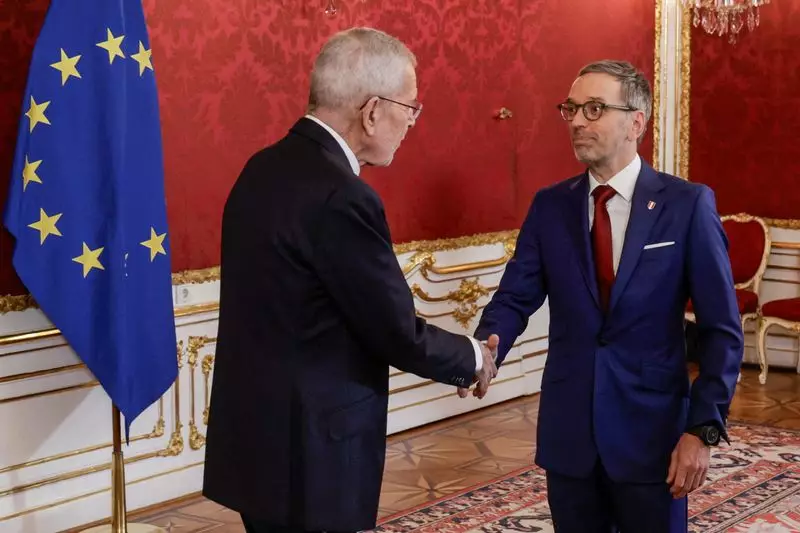In a striking political landscape, the Austrian Freedom Party (FPO), heralded for its far-right stance and euroscepticism, finds itself at the forefront of a potential coalition government. Following a parliamentary election in September where the FPO secured over 29% of the vote, Smith-in his report not only highlights the dynamics within Austria’s political sphere but also raises serious questions about the implications of such a shift.
The FPO’s Ascent to Power
Founded in the 1950s by a former SS officer, the FPO has long been associated with a controversial past that many modern European politicians actively distance themselves from. The party’s recent electoral success marks a pivotal moment in Austrian politics, as it emerged as the leading choice for a significant portion of the electorate. Herbert Kickl, the party leader, championed a populist approach, resonating with voters who feel left behind by traditional centrist parties. His slogan, “First the people and then the chancellor,” encapsulates a deep-rooted movement toward more direct governance that prioritizes the electorate over the political elite.
What stands out in this political shakeup is the fact that the FPO has previously served as a junior coalition partner, but never has it been poised to lead a government. The stakes are high as Austria navigates the intricacies of coalition negotiations in a context where issues of national identity, immigration, and economic stability overshadow political dialogues.
The Fallout from Failed Coalition Talks
The immediate political landscape has been characterized by unrest, particularly following the collapse of negotiations aimed at forming a coalition government led by the centrist People’s Party (OVP). Chancellor Karl Nehammer’s inability to forge a stable coalition highlights the significant divisions within Austria’s political frameworks. The abrupt resignation of Nehammer reflects not just a personal failure but also the broader disarray among moderate political forces resistant to collaborate with the FPO.
The former chancellor’s characterization of Kickl as a “security threat” reveals a deeply ingrained mistrust toward the far-right party. His departure has led to a notable shift in rhetoric from current OVP leaders, who now express openness to potential negotiations with the FPO, signaling a possible reorientation of Austrian politics.
Given that both the OVP and FPO share a tough stance on immigration, their potential alignment indicates a disruptive shift away from traditional coalition dynamics. However, substantial disagreements persist, particularly around economic strategies and foreign policy positions. The FPO’s firm opposition to extending aid to Ukraine poses a challenge to a cohesive platform aimed at addressing pressing regional security concerns, while its aggressive tax policies could ruffle feathers among traditional business interests in Austria.
As both parties endeavor to explore common ground against the backdrop of mounting economic pressure—inflation concerns and budgetary deficits loom large—negotiations may expose not only their respective policy imperatives but also their ideological commitments.
President Alexander Van der Bellen’s approach during this politically precarious time is indicative of the complexities surrounding democracy and governance in Austria. His commitment to safeguarding human rights, independent media, and EU membership underscores a pivotal balancing act between fostering collaboration and maintaining standards expected in a modern democracy. As the possibility of a coalition with the FPO looms, Van der Bellen’s vigilance is crucial.
His acknowledgment of the reduced opposition within the OVP toward engaging the FPO sets a tense stage for future negotiations. The emerging sentiment that a union could be plausible denotes a shift in the political climate that might reshape Austria’s approach to European and global challenges.
The Future of Austrian Politics
As Austria’s political landscape teeters on the brink of change, the implications are vast—not only for domestic policies but also for the EU as a whole. The evolving dynamic poses critical questions about the viability of traditional parties in securing governance against a resurgent far-right.
If coalition talks falter, a snap election remains a realistic scenario, and the mounting support for the FPO suggests a significant realignment among Austrian voters disillusioned with the status quo. Ultimately, the delicate negotiations unfolding now will forge the future trajectory of Austrian politics and could redefine the nation’s role within Europe, as it navigates the intersection of nationalism and collaboration.

